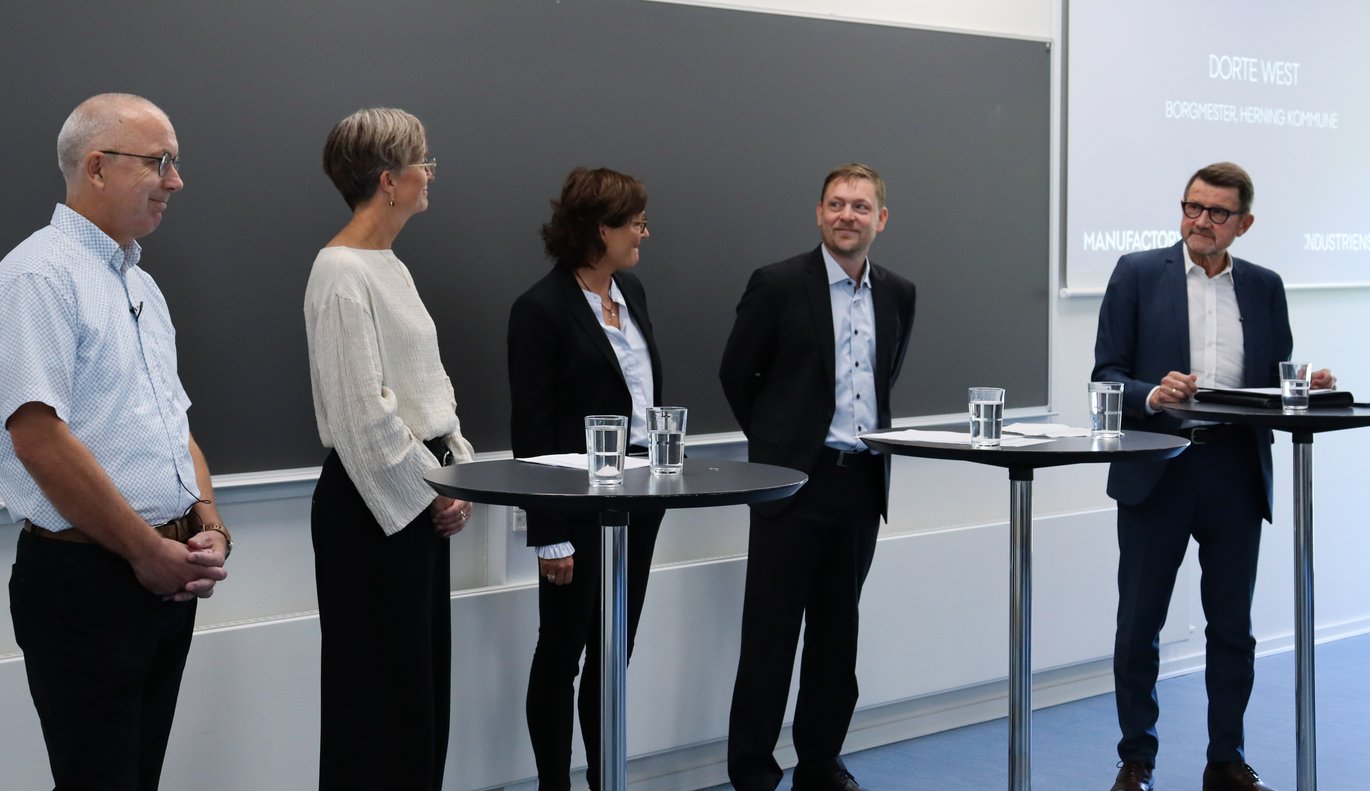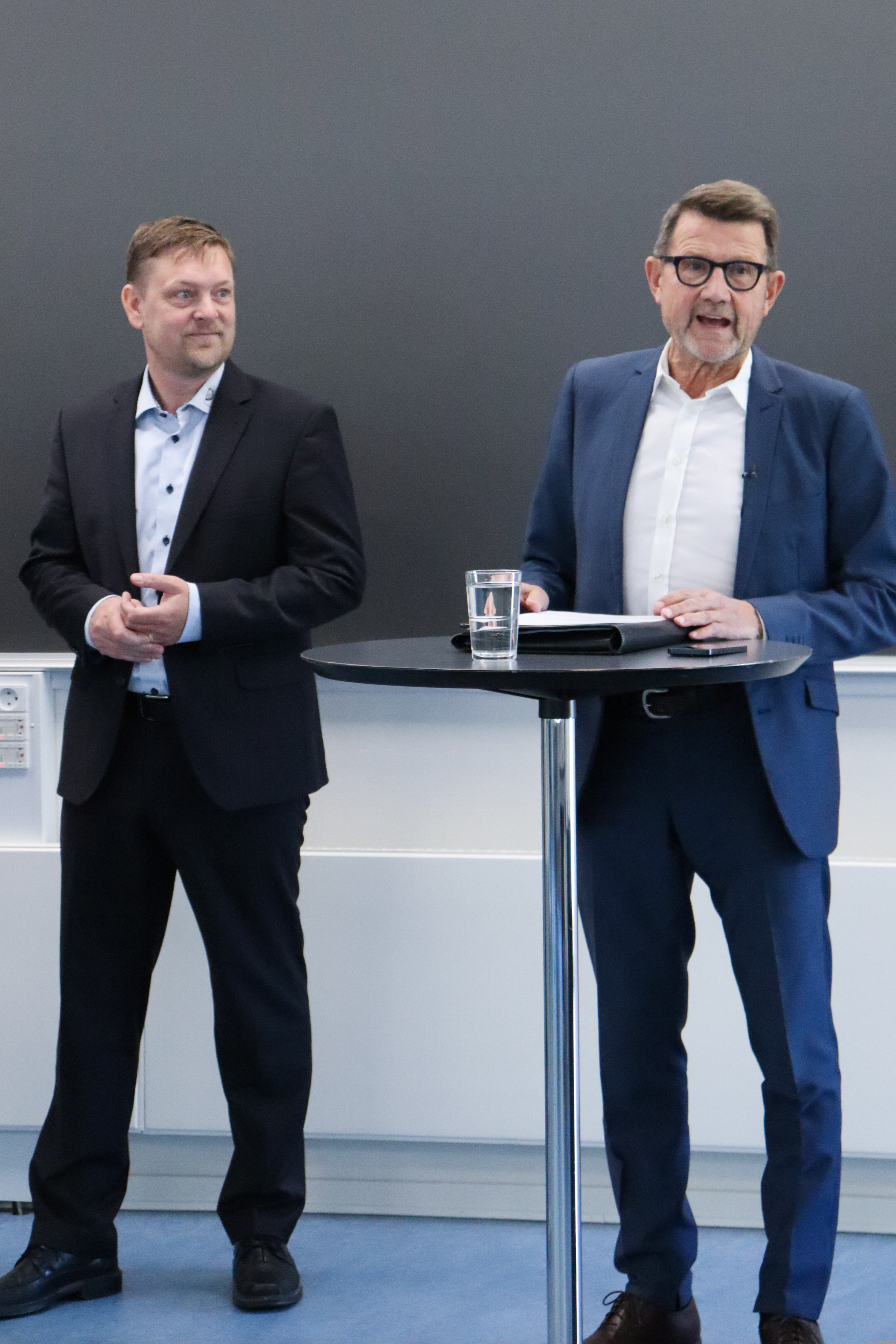Growth technology centre to prepare the ground for new collaborations between industry and knowledge institutions
Over the next 16 months until the end of 2023, a grant from the Danish Industry Foundation will be used to test and develop new forms of collaboration between industry, Aarhus University in Herning and the knowledge institutions in the area. The vision is to establish a growth technology centre that will build a bridge between knowledge and production and thus strengthen the competitiveness and innovation in the local manufacturing companies.




The plan is for the future growth technology centre to be a meeting place where companies are able to hone their abilities to produce sustainably and be on the cutting edge technologically and digitally – starting from the companies’ needs. The first phase, which is supported by 2.2 million Danish kroner from the Danish Industry Foundation, will take the form of a pilot project that will lead to the establishment of a growth technology centre called “Manufactory”.
- Production Denmark is in great need of infusing both the production processes and the products with more knowledge and innovation. Aarhus University here in Herning has made a serious effort with regard to business and industry, and the centre’s ambition is to further develop this collaboration, allowing the manufacturing companies to control the agenda to an even higher degree and have specific challenges solved in cooperation with the university, says the chairman of the steering committee, Helge Sander.
In Manufactory, companies can increase their innovative capacity, technological understanding and competitiveness by having access to specialised knowledge. This will, among other things, enable them to develop new products and business models as well as more efficient and sustainable production processes.
Chief development strategist in the Danish Industry Foundation, Charlotte Kjeldsen Krarup, says the following about the project:
- In the Danish Industry Foundation, we are occupied with strengthening the collaboration between the Danish industry and universities in an effort to supply companies with new technologies and pioneering research in a targeted way. With this grant, we provide the participants with the time and space to experiment and explore collaborators and subject matters. This provides the growth technology centre with optimal conditions for creating impact and improving the Danish industry’s competitiveness right from the outset.
The fulcrum for the growth technology centre is the needs and development of the companies, but the specific projects and activities of Manufactory have other important perspectives as well: New research fields are explored, students acquire relevant and practice-related knowledge, and new companies emerge.
- From a manufacturing company’s point of view, the outside pressure has never been greater than now and, at the same time, the development is so fast-paced that change is a crucial item on our daily agenda, says Chanette Oksborg from the company DEIF in Skive.
- That challenge calls for new methods throughout the company chain. Digitalisation and automation must be part of our focus area to ensure that we remain competitive. We cannot keep jobs in Denmark and the local area if we do not cooperate. I am looking forward to be a player on the team that will create the foundation for this journey, Chanette Okborg finishes.
The pilot project will reach its conclusion at the end of 2023, and it will involve technology centres, laboratories and knowledge institutions.
- In the next months, we will focus on identifying 10–12 manufacturing companies that are interested in participating in the pilot project and want to develop their innovative capacity, technological understanding and competitiveness. By testing different forms of cooperation in the pilot project, we will develop a strategy for how to establish the Manufactory growth technology centre, says project manager Søren Sørensen.
The vision of a new growth technology centre is divided into three phases: Pilot project, establishment and operation.
Between 2024 and 2028, the project will be in its establishment phase. In this phase, the experience gained during the pilot project will contribute to the development of the actual growth technology centre. If the vision becomes reality, the plan is that Manufactory over the course of 2028 will be able to open its doors to manufacturing companies, students and knowledge institutions.
____
Manufactory’s vision is to create a technology centre for companies, students and knowledge institutions. The objective is to increase the innovative capacity, the technological understanding and the competitiveness of manufacturing companies. The project is divided into three phases; the pilot project being the first. The project is supported by the Danish Industry Foundation.
Members of the steering committee:
Project manager: Søren Sørensen, Aarhus University in Herning |
Contact Astrid Refsgaard Anders Brandtoft Helge Sander |